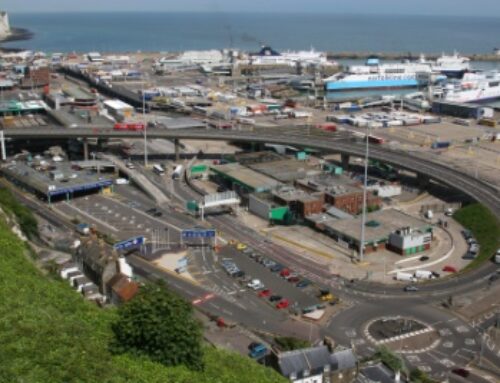DVSA claims success for drivers’ hours enforcement boost
 The Driver & Vehicle Standards Agency (DVSA) has released data which it says vindicates the move last year to grant the agency tougher powers to crack down on drivers’ hours infringements.
The Driver & Vehicle Standards Agency (DVSA) has released data which it says vindicates the move last year to grant the agency tougher powers to crack down on drivers’ hours infringements.
Since March 2018, DVSA examiners have had the power, at any single roadside check, to issue on-the-spot fines for up to five drivers’ hours offences committed over the preceding four weeks, at up to £300 per offence.
The change was first announced in 2017, and means drivers can face fines of up to £1,500 on a single occasion if persistent rule-breaking is uncovered, whether it occurred in Great Britain or elsewhere. Non-GB-resident drivers risk having their trucks immobilised if they do not pay the fines immediately.
The changes have yielded massive dividends, says DVSA. Despite performing over 7,000 fewer roadside enforcement inspections involving a drivers’ hours check in the year since the changes, as compared to the previous year, the total fines issued have risen more than sevenfold.
In the year prior to the changes, the agency issued 4,236 fixed penalties for drivers’ hours offences, totalling £478,400. But in the first year since the changes, this rose to 19,723 penalties, accruing a total of £3,653,450 for the Treasury.
“Before, our examiners could only issue roadside fines for ongoing drivers’ hours offences that were still happening at the time of the check,” explained DVSA enforcement policy manager Mark Horton, in a blog post on the government website last month.
“If they saw any offences before that, they needed to take the driver to court to fine them. It was more difficult and expensive to get a non-UK driver along to these court hearings than a British driver, which posed a real problem.
“Unsurprisingly, being able to cast a wider net had meant we’ve caught more offences.”
He added: “We want to make sure it doesn’t pay to break drivers’ hours rules. Being able to issue more fines for more offences sends a clear message – take your breaks.”
Meanwhile, fleet operators expecting the government to take a more relaxed approach to drivers’ hours after Brexit should think again; regulations have now been put in place to transpose EU drivers’ hours into domestic law for a post-Brexit context.
Presiding over the passage of the new regulations through the House of Lords in February, the transport minister Baroness Sugg said: “There will be no change for drivers from these regulations; the rules will stay the same. “
She explained that the contingency plans being put in place to allow cross-border haulage to continue after Brexit required continued parity with the EU on drivers’ hours law.
“The regulation on the haulage market access currently being discussed envisages the continuation of equivalent rules for drivers’ hours and tachographs, and includes draft provisions to reduce or terminate market access without those equivalent provisions, so they are important,” she said.
“Even under the limited access provided by ECMT permits, we also need to adhere to the international standards.
“On enforcement, parts of the tachograph rules and the current regime of drivers’ hours offences in the UK would not continue to be enforceable in respect of much of the commercial road transport in the UK [without these regulations]. Some of these breaches of the rules are incredibly serious, including the fraudulent manipulation of tachographs, so the rules are important to public safety.”
Baroness Sugg told peers that, while in the long-term, the UK would not be obliged to remain aligned to EU tachograph rules, the regulations do oblige the UK to remain aligned, as a contracting party, to AETR (European Agreement Concerning the Work of Crews of Vehicles Engaged in International Road Transport) rules – to which the EU rules are themselves currently aligned.
“The majority of the changes here are to ensure that there are explicit domestic provisions, including offences and penalties, to fully implement the AETR agreement,” she continued.
“The costs on business will not change as a result of these regulations. The effect of the rules will be the same: behaviours which are legal will continue to be allowed, and behaviours which are illegal will continue to be prohibited. The regulations will enable the enforcement of the rules by the DVSA and the police to continue as at present.”
She added that the devolved administration in Northern Ireland was preparing equivalent amendments to domestic legislation, which would be dealt with in a separate statutory instrument at Westminster due to the suspension of power-sharing in the province.
Image: DVSA Crown copyright











